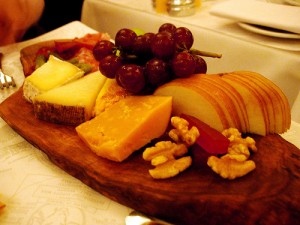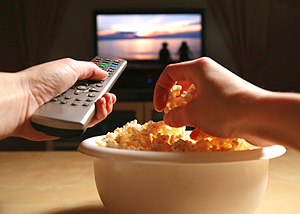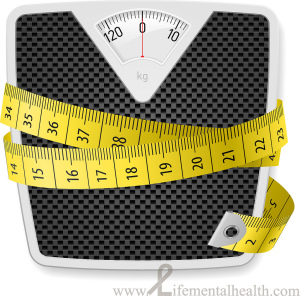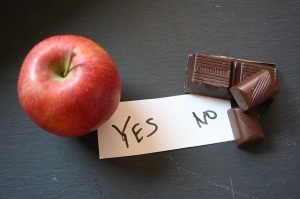
How Our Bodies Get Energy
Do you know how your body gets the energy it needs and what it does with it?
Like many people, you will probably have an idea but no real details about how our bodies get and use the food we eat. So here’s a quick resume covering the two most misunderstood hormones our bodies use.
Knowing about these will give you an insight about how our bodies convert what we eat into energy and what happens to the excess ‘energy’ our bodies produce. More importantly, it will show you just how you can gain more control over what your bodies does with what you eat and how by having that knowledge, you can get the most from the Snack Box Diet through evening out your eating habits.
Where we get our Energy
Glucose is a simple sugar that provides energy to all of the cells in your body. Your cells then take in glucose from your blood and break it down for energy.
For instance, brain cells and red blood cells rely solely on glucose for fuel. The glucose in your blood comes from the food you eat.
When you eat, food gets metabolised via your intestines and is distributed through the bloodstream to the cells in your body. In all conditions your body tries to keep the supply of glucose constant, maintaining as consistent as possible glucose concentration in the blood. If it did not do this [private_silver](as in diabetes for example) your cells would have too much glucose right after a meal (particularly one that is high in carbohydrates) and starve in between meals and during sleep.
When you have an excess of glucose, your body stores this in your liver and muscles by making glycogen, long chains of glucose. Conversely, when glucose is in short supply, your body mobilizes glucose from stored glycogen and/or stimulates you to eat food.
To maintain this constant blood-glucose level, your body uses two hormones – insulin and glucagon. These are produced in your pancreas and have opposite actions.
The Pancreas
Your pancreas is formed from clusters (Islets) of alpha and beta endocrine cells. The beta cells secret insulin and the alpha cells secret glucagons. Both these secretions are protein hormones made up of amino acids.
What Insulin Does
Insulin is used by almost all of your body’s cells, but it’s most active in the liver, fat and muscle cells. Insulin has the following effect:-
- Inhibits the liver and kidney cells from making glucose from intermediate compounds of metabolic pathways (gluconeogenesis)
- Causes the liver and muscle cells to store glucose in glycogen
- Stimulates fat cells to form fats from fatty acids and glycerol
- Causes the liver and muscle cells to make proteins from amino acids
Insulin production is the signal for the body to store energy (as fat). It does so by reducing the concentrations of glucose, fatty acids and amino acids in the bloodstream.
What Glucagon Does
Now when you don’t eat or eat food that have a very low glycemic index (Are low in carbs), your pancreas releases glucagons instead which causes your body to produce glucose… Glucagon acts on the same cells as insulin, but has the opposite effects in that it:
- Stimulates the liver and muscles to break down stored glycogen (glycogenolysis) and release the glucose
- Stimulates gluconeogenesis in the liver and kidneys
The action of glucagon is opposite to insulin in that glucagon mobilizes glucose stored inside your body and increases the level of glucose in your blood, thus stopping your blood glucose levels from falling dangerously low.
How Insulin and Glucagons Work as a Tag Team
Under normal circumstances, the levels of insulin and glucagon are effectively counter balanced.
When you eat, your body metabolises the food quite rapidly and registers the presence of glucose, fatty acids and amino acids absorbed from the food. This causes the pancreatic beta cells to release insulin into your blood and inhibit the pancreatic alpha cells from secreting glucagon.
As the levels of insulin in your blood begin to rise they act on the liver, fat and muscle cells in particular causing them to absorb the incoming molecules of glucose, fatty acids and amino acids. The insulin acts to prevent the concentration of glucose, fatty and amino acids from increasing too greatly in the bloodstream.
In this way, your body maintains a steady blood-glucose concentration. This action occurs when you eat a properly balanced diet as opposed to the high carb diet of today. Unfortunately, where the diet is high in carbs (or there is just too much food) it has to go somewhere and inevitably, it is deposited as fat in just where you don’t want it to go.
Between meals, or when you are sleeping, your body senses that it is effectively starving. However your cells still need a supply of glucose to keep going. So while in this condition, the slight drops in blood-sugar level stimulate glucagon secretion from the alpha cells in the pancreas and in turn inhibit the release of insulin.
This causes glucagon levels in the blood to rise and start acting on the liver, muscle and kidney cells to mobilize glucose from glycogen to make glucose that’s then released into your blood. Such action prevents the blood-glucose levels from falling too much.
This change occurs many times throughout the day with the secretion of either insulin or glucagons helping to keep your blood-glucose level relatively constant, typically in the range of 90 mg per 100 ml of blood.
However, seeing as the secretion of the pancreas lag behind the blood glucose levels, the action of eating large quantities of high carb food will drastically disturb this. Simply put, when the blood glucose level is overly high more quantities of insulin will be produced than are needed as the glucose will have been dealt with. So more glucose will have been absorbed than was necessary. This will cause a dip in the blood glucose level causing us to feel a lack of energy and trigger a production of glucagon.
Sunday Lunch Syndrome
This is something I call the “after Sunday lunch syndrome” as it is most often seen after a big meal. You will most likely have noticed that 30 – 60 minutes after eating far too much (as in a typical Sunday lunch) and then not moving a great deal either, you tend to feel really sleepy and quite soon many will also start to get the munchies and go looking for that last roast potato or piece of pie. In fact the body is wanting anything that will get the blood sugar up again – and so the cycle continues…
What Can You Do?
Well, the most obvious first step is to cut down on foods with a high level of carbohydrates in them.
The nest thing would be to even out the amount you eat by eating smaller quantities more regularly throughout the day.
Just by taking these two small steps in cahnging what and how you eat will make a masive difference to how your body reacts to what you eat. And that will be shown by improved or more even energy levels and slowing down or even reversing the process of fat gain. I.E. You will start to lose fat instead of putting it on.[/private_silver]







